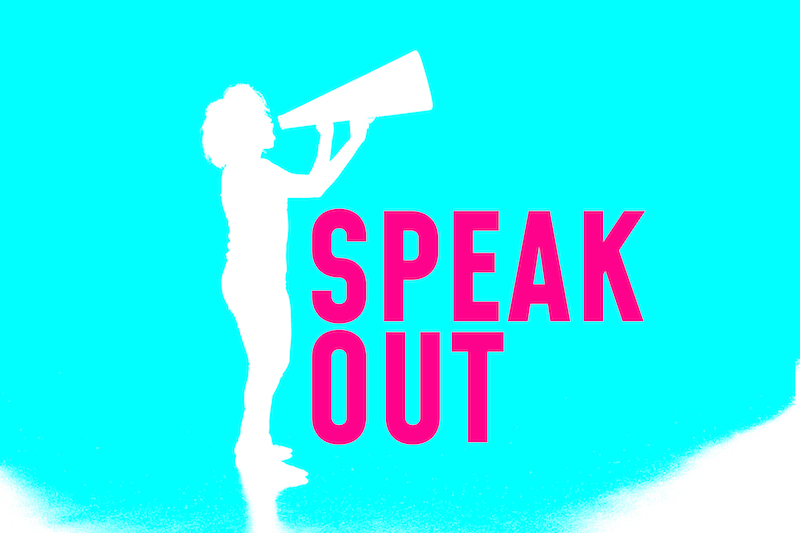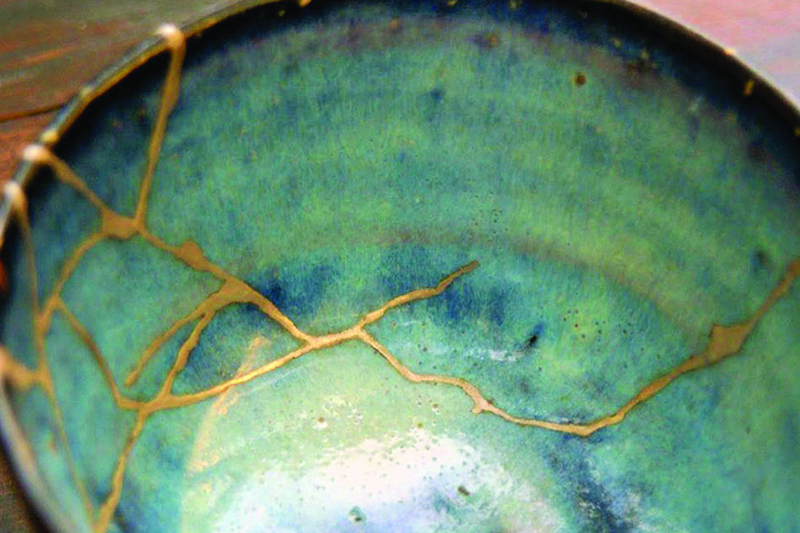
What Story are you Going to Tell?
This article was written before the start of the Covid pandemic and the murder of George Floyd but I decided to post it anyway as I think that what it has to say is more relevant than ever. Simply, we need to co-create fairer systems.
NOTE – This article is a long read. Not very fashionable – I know. I’ve put the main stuff in BOLD for those of you who prefer a quick read.
I studied literature at university and have always had a fascination with stories, where and who they come from, and what they tell us about the world. As I read Hardy’s tragic Tess of the D’Urbervilles (1891) and Lawrence’s sexually charged Lady Chatterley’s Lover (1928) – which wasn’t actually openly published until the 60s and even then was subjected to an obscenity trial – I was clearly being told, by white men, what a (white British) woman could expect from her existence at the time of writing. I also reflected on how much that had changed in the years between these two novels. My conclusion – a lot.
Reading Girl, Woman, Other by Bernadine Everisto (2019) recently, clearly highlighted to me how the concerns and fates of female protagonists and what they can expect from their environments has radically changed in the last 100 years. Moreover, in this case, we are reading about the fates of Black women by a black female writer.
You only need to look at the phenomenon of both Fleabag and I May Destroy You – recent TV series – to see the extent of progress in terms of what stories are now “acceptable” to society and who gets to tell them. The global success of these shows illustrates not just that their audience was ready for a wildly new narrative on how a woman can navigate her way through the world, but we were actually HUNGRY for it. I would argue desperate for it!
Culture is a testament to progress.
It offers compelling proof that prescribed narratives can be re-written.
And right now we are in a very exciting time – a real paradigm shifting moment and I strongly believe we need to be aware of that, honour that, and act accordingly.
The stories that we read or see on TV or in films are the most obvious form of storytelling, perhaps the clearest place to see the messages inherent in a narrative, but we mustn’t forget that we are surrounded by multiple types of storytelling and that we are influenced on a daily basis by their power and the messages and ideas embedded in them.
We can sometimes run into danger as we quite often accept a narrative and its messages and ideas without giving them much thought. We associate A with B purely because we’ve become so used to hearing a particular story. We just repeat a dominant idea that has become so much part of our (collective) imagination that we don’t even question it. This happens not just at the individual level (“I’m unlucky in love!”), but in families (“Uncle David is crazy!”), cities (“Paris is the city of romance!”), ethnicity (“Latinos are good lovers!”).
Big businesses spend millions on corporate storytelling because they know stories stick.
The power of repeated stories should never be underestimated. They become folkloric. They become our truth. And sometimes when something is so embedded and has gone unchallenged for so long we forget that, like the fate of women in cultural artifacts, these narratives can change.
I was myself on the receiving end of what I interpreted as a clear case of someone unconsciously repeating a dominant story line the other day (which pushed me to write this article) and I want to share with you how it made me feel.
I went to a coworking space in central Barcelona to ask the manager, a woman I had previously met at an event to promote female empowerment, if I could run a workshop in the space. I was told “Yes, of course” but that I should do it for free, not because the philosophy of the space believes in offering free training and services for its community of users (which I would have totally respected) but because “that’s how things are in Barcelona.” This article is not about whether there are professional circumstances when you should work for free – there obviously are. This article is about the effects of the unconscious retelling of a story (that doesn’t necessarily serve a community), the auto-pilot responses that we sometimes give when we’ve forgotten to question an accepted truth, an accepted narrative. This article is about it being time to push for open inclusive dialogue, about wanting to create an environment where everyone can have a say, where we can collectively make decisions and finally facilitate fundamental systemic change. This article is about TELLING A DIFFERENT STORY.
On an instinctual level I felt like this person hadn’t fully realised, or doesn’t truly believe, that we can instigate change if we want. I would love this article to make them feel empowered enough (if they ever read it) to embody Mahatma Gandhi’s words: Be the change that you wish to see in the world.
But enough with inspirational slogans. We need to talk about the insidious effects of the administering of such rhetoric, of being told “that’s how it is”. I walked out of that coworking feeling confused and disappointed. By the time I got home confusion and disappointment had turned into shock and anger. I realised I’d been shut down, silenced, told “how it was” (worse, by someone I would never have expected that from). I felt exactly how I’ve been made to feel many times by a patriarchal model of leadership that I’ve spent my professional career trying to avoid (because, so that my thoughts are crystal clear, IT’S AN INCREDIBLY ANTIQUATED SYSTEM THAT HAS CEASED TO BE OF ANY USE TO THE WORLD AT LARGE – IT UNDERMINES, IT PREVENTS INDIVIDUAL GROWTH, IT’S REALLY BORING).
Of course, I can (and will) go and find somewhere else to do my workshop. But this article is not about me and my workshop. This article is a plea to look at something way more important that affects ALL OF US.
The thing is, frankly, we still have in place patriarchal power dynamics, even in forward thinking environments, unconsciously implemented by people who I am sure would be horrified to hear they had embodied a model they are trying to change. I spend quite a lot of time going to networking events for female entrepreneurs. They focus on empowerment, inclusivity, diversity – they are very inspirational. And it’s great that these networks exist. There’s a lot of talk about “change” being possible, but at the same time a certain subtle reluctance (caused by fear?) to let go of tired old narratives regarding what a person with a position of power does. It’s a narrative that actively suppresses the voice of the many and gives a platform to the voice of the few. This is not happening through malice (I sincerely hope) – it’s through lack of awareness, lack of belief perhaps, fear of the new, and a fundamental lack of discussion on the topic.
What this all comes down to is what I see as the common feature that current buzzwords “inclusivity”, “diversity”, “gender equality” share. The thread that binds these three concepts together is giving a voice to the voiceless. In essence, creating an environment in which EVERYONE is able to write their own story.
I need to say that I’ve never been publically vocal about my thoughts on the big stuff. Like – dismantling the patriarchy, inclusivity, diversity, feminism in general… you know… The BIG STUFF! I do, however, spend a lot of time reading and thinking about these things and will often bang on about it to my lucky (haha) friends, family, and sometimes even strangers (especially after a glass of wine or two).
When I analyse these concepts they come back to the same thing. It’s simple.
People need to be allowed to construct their own story.
Not have a story dictated to them from above and, let’s face it, usually by a privileged white man – or someone who behaves like one because they believe their position of power calls for it.
I wholeheartedly believe that we are in a period of great change.
Let me qualify – the patriarchy, with all its old ideas relating to the exertion of dominance, hierarchical structures that are designed to serve the few, being dictated to on ideals and standards, having tones set, suitable behaviours imposed, norms and values enforced that have been filtered through the lense of a privileged white male, all of this is on its last legs. This narrative is changing in front of our very eyes. We are witnessing positive advancements every day and, as this shift will benefit everyone, it is a joy to behold. Of course paradigm shifts are not easy. There is a struggle going on and we need to know what side we are on. Are we going to continue to impose on people because “we know what’s best” and because “that’s how it is” or are we going to create an environment that encourages discussion, negotiation, the sharing of ideas, that takes an active interest in what everyone has to say about how they would like their story to unfold? We need to decide, and then act consciously, mindfully, and authentically. We need to question our motivation and be sure that the story we tell, even to ourselves, reflects our truth.
I want to give you a non-professional example that clearly illustrates how careful we need to be with dominant narratives. Have you ever spent an amazing night with a gorgeous 25 year old Lithuanian professional basketball player? The kind of night where as you’re skipping home with an enormous smile on your face the next morning you feel perfectly content with what you have shared and don’t feel any need or desire for it to be anything more than what it was… when suddenly a little voice pops up in your head and asks “so, are you going to see him again?”, a question so inappropriate for the situation that it almost sounds insane?
I caught myself in this situation a little while back.
As I listened to this little voice, goading me to chase a certain narrative, trying to diminish my happiness, making me feel like this wonderful experience wasn’t enough, I understood something transformational. This question, this thought, had come from a lifetime of films, songs, books, throw away comments made by friends and family members, that have told me “how things are”. I felt so liberated in that moment of realisation. I remember thinking “WOAH NOW!!!! Who’s idea is this??? It’s not mine!! I wasn’t at the meeting that decided the objective is long-term relationships. Who deemed them The Holy Grail? Who said they are infinitely more valuable, honorable, desirable than one night stands with Lithuanian basketball players? It wasn’t me! FUCK THAT!! I’m not going to be bullied by this idea. I will decide what I value, what I honor, and what I desire, and when. Thank you.”
During the conversation with the coworking’s manager I felt that the “that’s how things are in Barcelona” comment had come from somewhere else. It didn’t feel like it authentically belonged to that person. And of course, my reaction was: NOPE –
I don’t accept a narrative I didn’t agree to that is going to dictate how I move through my life. And, more than that, I’m ready to fight for a world where no one has to.
There are more initiatives, movements, and organisations talking about equality than ever before. We are living in an unprecedented time. I feel genuinely optimistic that we can have, finally, a real chance at creating more equal and inclusive societies in which we ALL get to decide our own fate. I believe we are in a moment where we can start to construct our own honest narratives that clearly demonstrate our personal values and ideals. This is a conversation I want to be a part of, a conversation I want all of us to be a part of.
So over to you – please tell me “What story are you going to tell?”
By Sarah Jane
24th Sept 2020




